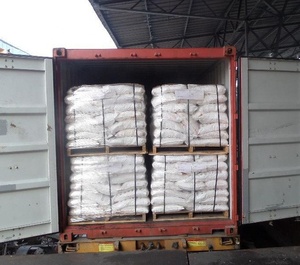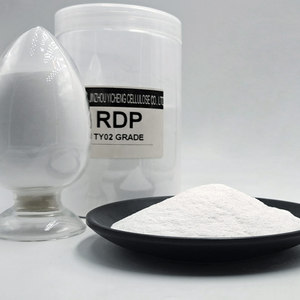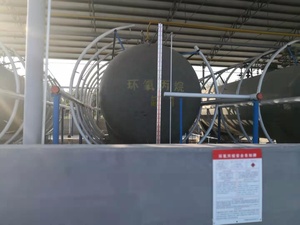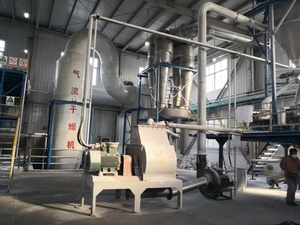
All categories
Featured selections
Trade Assurance
Buyer Central
Help Center
Get the app
Become a supplier

(3143 products available)













































Polycarboxylate powder is a chemical substance commonly used in the construction industry. Its application is particularly important in the production of concrete. This material is applied widely because it offers a myriad of benefits and advantages to manufacturers and engineers. For instance, concrete that has been blended with polycarboxylate is easier to work with, and more cost-effective, and provides higher strength value, among other benefits. Due to its importance, it is critical to understand the material well, including its types and applications. This section will delve into the different types of polycarboxylate powder.
Essentially, there are two types of polycarboxylate powder, namely:
The above two types of polycarboxylate powder are further divided into subcategories. For instance, polycarboxylate superplasticizer powder is divided into three subcategories:
On the other hand, polycarboxylate viscosity reducers are divided into two types:
The following are the functions of polycarboxylate powder:
Water reduction
The water-reducing effect is the key element that enables the production of high-strength concrete while maintaining workability. This is achieved by the polycarboxylate superplasticizers' ability to reduce the amount of water needed for a specific concrete consistency. Lowering the water-cement ratio increases concrete strength without sacrificing workability. Reduced water content also minimizes concrete's drying shrinkage and leads to long-term strength gain as the concrete cures.
Workability
Polycarboxylate superplasticizers enhance the workability of fresh concrete mixes, allowing for easier, more efficient pouring and shaping of structural elements. This is particularly advantageous for complex designs or large-scale construction projects. Improved workability can result in smoother finishes and reduced labor costs during the casting process.
Early Strength Development
By optimizing the dispersion of cement particles, polycarboxylate superplasticizers facilitate quicker hydration reactions. This leads to increased early strength development, allowing construction projects to proceed faster. Early strength development is critical in applications where time is of the essence, such as precast concrete elements that need to be demolded and transported quickly.
Enhanced Durability
Reducing water content not only increases compressive strength but also enhances the durability of concrete structures against environmental degradation, chemical attacks, and permeability. This is crucial for infrastructures like bridges and tunnels that require longevity. A more durable concrete mix can lead to longer-lasting infrastructure and reduced maintenance costs over the structure's lifespan.
Versatility and Sustainability
Polycarboxylate superplasticizers offer versatility by being applicable to various concrete types, including those with high-performance, self-compacting, and eco-friendly concrete incorporating recycled materials. Their efficiency allows for the incorporation of various supplementary cementitious materials, such as fly ash or silica fume, contributing to greener concrete practices.
Polycarboxylate superplasticizer (PCE) powder is widely used in the construction industry. It's applicable in different scenarios, including:
Water Reducing Ability:
Polycarboxylate superplasticizers' main goal is to minimize the water/cement ratio without compromising workability. Thus, buyers must choose products with strong water-reducing capabilities. This enables the production of high-strength concrete structures.
Compatibility with Materials:
Concrete plants and construction projects use different types of cement. Business owners should get polycarboxylate powders compatible with ordinary Portland, fly ash, and slag cement. This compatibility ensures the powders are useful in various projects and enhance the performance of the different cements.
Solid Content:
Typically, superplasticizers are liquids. However, they can also come in powder form. When looking for polycarboxylate in powder form, business owners should pay attention to the solid content. Higher solid content means more active ingredients and better performance.
Setting Time:
Construction schedules heavily rely on concrete setting times. Thus, buyers should look for polycarboxylate powders that produce concrete with desired setting times. Products that yield fast-setting concrete are preferred for projects like bridges. Those that allow slow setting are good for massive structures.
Flocculation Resistance:
Concrete can lose its flowability and workability over time. This is known as flocculation. To counteract this effect, buyers should get polycarboxylate powders with strong anti-flocculation properties. This ensures the final concrete mixture maintains workability for extended periods. Such concretes are easy to transport and pour.
Regulatory Compliance:
Buyers should ensure their suppliers provide polycarboxylate superplasticizers that comply with local environmental and safety regulations. This ensures sustainable and safe construction practices.
Q1: What are the benefits of polycarboxylate powder?
A1: Polycarboxylate superplasticizer is used to improve the workability and fluidity of concrete. It enables the production of high-strength concrete with a low water-cement ratio. Additionally, it enhances the durability of concrete and reduces the permeability of hardened concrete.
Q2: Is polycarboxylate eco-friendly?
A2: Yes, polycarboxylate is generally considered eco-friendly. Its use leads to water conservation by reducing the amount of water required for concrete mixing. It also allows for the recycling of concrete waste. Furthermore, it produces high-strength concrete that has a long lifespan.
Q3: How is polycarboxylate powder stored?
A3: Polycarboxylate powder should be stored in a cool, dry place. The storage area should be well-ventilated and protected from direct sunlight. Additionally, the storage containers should be sealed properly to prevent contamination and moisture ingress.
Q4: Can polycarboxylate be used in hot weather?
A4: Yes, polycarboxylate can be used in hot weather. Hot weather conditions usually lead to rapid evaporation of mixing water and increased concrete setting time. However, PCE-based superplasticizers have a retarding effect that can help to counteract these challenges and extend the workability time of concrete.
Q5: What are the types of polycarboxylate powder?
A5: Polycarboxylate superplasticizer comes in two main types. They include linear and comb-like polycarboxylate superplasticizers. The linear PCEs are characterized by high workability, whereas the comb-like PCEs have high water reduction and excellent workability.